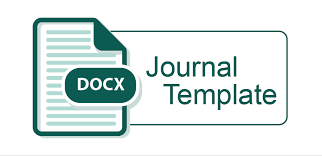Reviewer Guidelines
Applied Informatics for Sustainability and Artificial Intelligence Journal (AISAI Journal)
Peer Review Policy
All manuscripts submitted to AISAI Journal undergo a double-blind peer-review process to ensure that they are within the journal’s scope, meet academic standards, and present sufficient novelty and quality for our readership. Reviewers are expected to uphold this standard by providing constructive and fair evaluations.
These guidelines outline the responsibilities, ethics, and evaluation criteria for reviewers.
Reviewer Responsibilities
As a reviewer, you are expected to:
- Critically evaluate the manuscript’s suitability for publication.
- Provide constructive, impartial, and respectful feedback that helps authors improve their work.
- Highlight strengths as well as areas needing improvement.
- Maintain professionalism and avoid comments that discourage or denigrate the authors.
- Deliver the review within three (3) weeks or inform the editor if more time is needed.
Before Accepting a Review Request
Please ensure that:
- Expertise → The manuscript is within your field of expertise.
- Availability → You have sufficient time to conduct a thorough review within the given deadline.
- No Conflict of Interest → You have no personal, financial, or professional conflict with the authors or the work. If a conflict arises, inform the editor immediately.
Reviewer Ethics
- Treat all manuscripts as confidential documents. Do not share or discuss them with third parties.
- Do not use any part of the manuscript for personal advantage or to discredit others.
- Maintain the integrity of the double-blind process by not contacting the authors directly.
- Be fair, honest, and objective in your evaluation.
- Recuse yourself immediately if impartiality cannot be maintained.
Conducting the Review
Key Evaluation Criteria
When reviewing a manuscript, consider the following:
- Scope → Is the topic within AISAI Journal’s scope? Will it interest the readership?
- Novelty & Originality → Does it present new knowledge or insights?
- Title & Abstract → Are they clear, concise, and representative of the content?
- Content Quality → Is the research question significant? Does it contribute to the field?
- Methodology → Is it clear, precise, and appropriate? Are experiments or analyses conducted properly?
- Results & Discussion → Are results valid, significant, and well interpreted in context?
- Figures & Tables → Are they relevant, clear, and properly labeled?
- Data Completeness → Are data sufficient and reliable?
- References → Are references current, accurate, and complete?
- Clarity & Language → Is the manuscript understandable and well-written?
- Ethical Standards → Does it avoid plagiarism, duplicate publication, and data manipulation?
Ethical Considerations
Reviewers must be vigilant for:
- Plagiarism → Text or data copied without proper citation.
- Improper Referencing → Missing or incorrect citations.
- Duplicate Submission → Work previously published elsewhere.
- Data Fabrication/Fraud → Manipulated or falsified data.
Any suspected issues must be reported to the editor immediately.
Making Good Comments
- Be constructive and respectful; aim to improve the manuscript.
- Provide clear, specific, and evidence-based comments.
- Suggest improvements in clarity, methodology, or analysis where necessary.
- Avoid personal, dismissive, or discouraging remarks.
- Highlight both strengths and weaknesses.
Recommendations
At the end of your review, please recommend one of the following:
a) Accept as is
b) Accept with minor revisions
c) Accept with major revisions
d) Major revisions with re-review required
e) Reject but encourage resubmission after further development
f) Reject outright
Each recommendation must be supported with justifications and constructive feedback. Final decisions are made by the editorial board, considering all reviewer reports.




